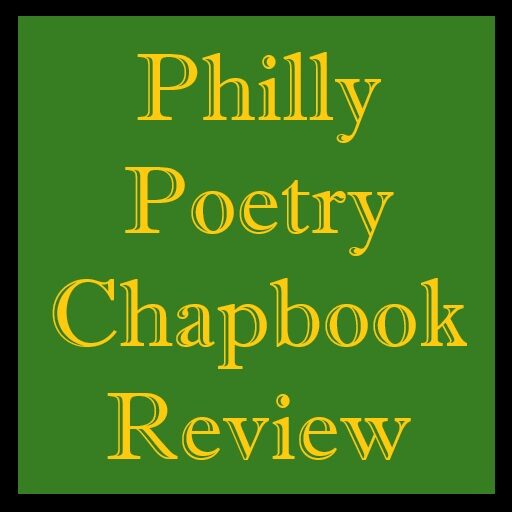Philly Poetry Chapbook Review is pleased to present five original poems by poet-scholar Aldon Lynn Nielsen as our first biweekly featured poet of the Winter 2025 issue.
Poems
When We Walked
Everywhere in the rumble
And rubble of the coming underground
Chewing its way
Through the city
To Judiciary Square
Daily past the dating calls
Of 14th Street
Even whose women
Complimented my clutch of books
Hurried me on my way
The future Metro
Tore at their foundations
A stroll the city’s owners
Would soon enough reclaim
Where we the sturdy studied
Where work nights were
Another study
“I have no children”
I have no children
And one of them is yours
Conjured on lips
Torn from speaking
Spoke to you
An unready part of you
Pronounced me
Unready too
Truth may one day rekindle
Cell
Core and unvoiced virtue
That shriveled message
Heard against denial
As easily as I made
A choice
Your unsteady steady
Accomplice
Related: A Conversation with Aldon Lynn Nielsen
LINES COMPOSED WHILE CONTEMPLATING THE EVENTUALITY OF PLANS FOR MY FUNERAL
Could we maybe
Just this once
Leave me
Out of it
Browning Yeats
The hugest of love stories
Unfolds in Spider Dew Montana
In the Night Works
The shade maker’s glare falls
Across the girl shaving stars’ edges
White with intact leaf
Something comes untucked here
Flops into the whirring works
A shape in steam
Old water on the machine
And virginity
Renews itself like a moon
Humbling humidity
Down the line they throw a switch
Uninspected shades piling
Against irregular stars
A transfer from Billings
Fires everybody
The pathetic fallacy
The pathetic fallacy crying in its corner
While the great poem of late life
Writes postcards from the other side of the room
The ethos of accident
A treatise on the
Chinese written character as
Ankle tattoo in the
Late 20th century
An inkling chorus
Trumpets bespatterment
We live in a time when
Journal is a common verb
Where less is less
More or less
You can freeze some of the people some of the time
(The last three poems are also featured in the chapbook Sufferhead, published by Bottlecap Press in 2022. The author talked with PCR about the book here: A Conversation with Aldon Lynn Nielsen)
About “When We Walked”
The poem’s first four words, “When we walked / / everywhere . . . “) are a return to the time of my early college days in Washington, D.C., when I had no car. That seemed no disadvantage at the time, and I did indeed walk everywhere. (Though I would hop on a bus if headed for the ‘burbs.) That was the era when the “DMV,” as we now call the District-Maryland-Virginia region, was constructing the Metro system, and streets were torn up everywhere. The project was an employment boom for the area, and also brought many experienced mining workers to the city to operate the huge machines that were chewing and crawling their way through the earth beneath our feet. One of those men, an African American miner from West Virginia, used to live next-door to me. The two of us would sit on our porches with guitars and play country music, which he much loved. He had a great voice.
I was working full time on a night shift and taking classes at what would soon be known as the University of the District of Columbia. In those days, most of my classes were held in a “temporary” building that had been constructed at 2nd & E, NW, during WWII. (When the school moved to its new uptown campus some years later, the building served as a homeless shelter for many years, till the land was far too valuable for that purpose and the building was replaced by something more serviceable for government and business.) I could hear and feel the mining operations beneath me as I wandered from neighborhoods above Dupont Circle to my classrooms. The daily route took me along the “stroll” around 14th street, where the ladies of the night were working their day shift. They could tell at a glance that I was no prospect, but as they saw me day after day they seemed to get a kick out of my dedicated student peregrinations. As with my classroom building, the “stroll” was an embarrassment to the government, and became a thing very much of the past as gentrification took hold. My own night shift was my study, during which I managed to read entire syllabi from my courses.
Author Bio

A.L. Nielsen’s books of poetry include Heat Strings, Evacuation Routes, Stepping Razor, VEXT, A Brand New Beggar, Tray, Back Pages: Selected Poems and Spider Cone, among others. At present he is completing a poetry collection titled Hard Gospel. He was the first recipient of the Larry Neal Award for poetry, and has also received the Darwin Turner Award, the Josephine Miles Award, the SAMLA Studies award and Gertrude Stein awards. He is the author of the scholarly works Reading Race, Writing between the Lines, C.L.R. James: A Critical Introduction, Black Chant, Integral Music and The Inside Songs of Amiri Baraka. He has co-edited two anthologies of innovative poetry by African American artists, as well as The Collected Poems of Lorenzo Thomas. Recently retired from a career as an educator, he has taught at George Washington University, Howard University, San Jose State University, UCLA, Loyola Marymount University, Penn State University and the Central China Normal University, as well as in the Washington D.C. public schools. He now lives in Santa Barbara, CA, with his wife, Dr. Anna Everett.

Contents
Book Excerpt: Further Thought by Rae Armantrout
Read the featured Excerpt Poem of the Month for January 2025, “Further Thought” from Go Figure by Rae Armantrout, along with a few words from the poet.
Read five poems by poet A.L. Nielsen, our first biweekly poet of the Winter 2025 issue, along with a few words about the poem “When We Walked”.
Chapbook Poem: The Poem as an Act of Betrayal by Benjamin S. Grossberg
Read the featured Chapbook Poem of the Month for January 2025, “The Poem as an Act of Betrayal” from As Are Right Fit by Benjamin S. Grossberg, along with a few words from the poet.
Jan. ‘25: Year One: What worked, what didn’t, and what to expect
Editor Aiden Hunt looks back at our first year and discusses changes to Philly Poetry Chapbook Review in 2025.
Three Poems by Shelli Rottschafer
Read three poems by poet Shelli Rottschafer, our second biweekly poet of the Winter 2025 issue, along with a few words about the poem “Because We Remember.”
Dancing With the Dead: On Ragnarök at the Father-Daughter Dance by Todd Dillard
“Todd Dillard successfully transgresses the unspoken cultural embargo on work that grapples with life during the COVID-19 pandemic in his new chapbook, Ragnarök at the Father-Daughter Dance.”
Read three poems by poet Wendell Hawken, our third biweekly poet of the Winter 2025 issue, along with a few words about the poem “First Hurt”.
Book Excerpt: Slow Chalk by Elaine Equi
Read the featured Excerpt Poem of the Month for February 2025, “Slow Chalk” from Out of the Blank by Elaine Equi, along with a few words from the poet.
Chapbook Poem: Caro M. by Angela Siew
Read the featured Chapbook Poem of the Month for February 2025, “Caro M.” from Coming Home by Angela Siew, along with a few words from the poet.
Read four poems by poet Natalie Marino, our fourth biweekly poet of the Winter 2025 issue.
A Conversation with Kate Colby
Poet Kate Colby discusses her latest chapbook, ThingKing, her creative writing practices, and her penchant for poetry chapbooks with PCR Editor Aiden Hunt in this interview piece.
Read three poems by poet Adele Ross, our fifth biweekly poet of the Winter 2025 issue, along with a few words about the poem “Heavy Water”.
Book Excerpt: The Self-Combed Woman by Laynie Browne
Read the featured Excerpt Poem of the Month for March 2025, “The Self-Combed Woman” from Apprentice to a Breathing Hand by Laynie Browne, along with a few words from the poet.
Chapbook Poem: To Let Go by Deirdre Garr Johns
Read the featured Chapbook Poem of the Month for March 2025, “To Let Go” from Fallen Love by Deirdre Garr Johns, along with a few words from the poet.
Read four poems by poet Sarena Tien, our sixth biweekly poet of the Winter 2025 issue, along with a few words about the poem “Mother Tongue”.
Life’s Lazy River Journey: On Tributaries by Aspen Everett
“A thread of adulation for matriarchal spirituality and the lifegiving value of water runs through the collection. Its first poem pays homage to [Toni] Morrison.” Read the full chapbook review by Shelli Rottschafer.
Three Poems by Jeanne Bamforth
Read three poems by poet Jeanne Bamforth, our seventh and final biweekly poet of the Winter 2025 issue, along with a few words about the poem “New Course”.

